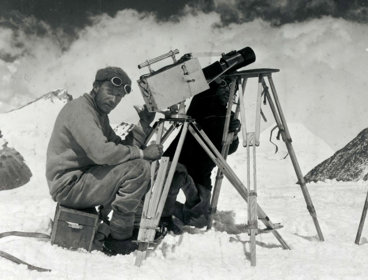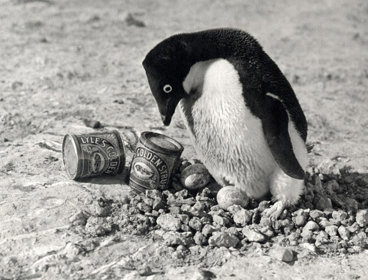The Society has a long and complicated history. Founded in 1830, our status as a leading UK institution emerged from the structures of imperialism and colonialism. In recent decades, historical geographers and others have worked to tell complex, critically-engaged histories of geography and of the Society. Below we share a developing list of key reading on these topics.
The following list of literature relating to the history of the Society is dynamic. If you know of other resources or publications you think we should be sharing, we’d be happy to hear from you at rhed@rgs.org
The Society does not accept responsibility for the content of the external sites. Inclusion on this list does not equate to an endorsement of any content or organisation. Please contact the external site for questions regarding individual resources.
General
- Heffernan, M. (2011). Learned Societies, in Agnew, J.A. and Livingstone, D.N. (eds). The SAGE handbook of Geographical Knowledge. London: Sage Publications, pp. 111-125.
- Livingstone, D. N. (1992). The geographical tradition: episodes in the history of a contested enterprise. Oxford: Blackwell.
- Jazeel, T., Mackay, A., Evans, S.L. and Souch, C. (2022). Decolonising spaces of geographical knowledge production: ‘Thinking geographically’ with undergraduate geographers in the RGS-IBG at Kensington Gore. Area, 54, pp. 516–520. Access the article.
- Stoddart, D.R. (1986). On Geography and its History. Oxford: Basil Blackwell.
- Stoddart, D.R. (1980). The RGS and the 'New Geography': Changing Aims and Changing Roles in Nineteenth Century Science, The Geographical Journal, 146(2), pp. 190-202. Access the article.
Women and the Society
- Armston-Sheret, E. (2024). Disability and gender in the history of geographical exploration: Understanding Isabella Bird Bishop as a disabled geographer. Area, e12944. Access the article.
- Blunt, A. (1994). Travel, gender and imperialism. New York: The Guilford Press.
- Maddrell, A. (2009). Complex locations: women’s geographical work in the UK 1850-1970 (RGS-IBG Book Series), Oxford: Blackwell.
- Evans, S.L. (2016). Mapping terra incognita: women's participation in Royal Geographical Society-supported expeditions 1913-1939, Historical Geography, 44, pp. 30-44. Access the article.
- Keighren, I.M. (2017). 'A Royal Geographical Society for Ladies': The Lyceum Club and Women's Geographical Frontiers in Edwardian London, The Professional Geographer, 69(4), pp. 661-669. Access the article.
The debates around women's Fellowship
- Bell, M. and McEwan, C. (1996). The admission of women Fellows to the Royal Geographical Society, 1892-1914: the controversy and the outcome, The Geographical Journal, 162, pp. 295-312. Access the article.
- Evans S. L., Keighren I. and Maddrell A. (2013). Coming of age? Reflections on the centenary of women's admission to the Royal Geographical Society. The Geographical Journal, 179(4), pp. 373-376. Access the article.
- Maddrell, A. (2007). Teaching a Contextual and Feminist History of Geography through Role Play: Women's Membership of the Royal Geographical Society (1892-1893), Journal of Geography in Higher Education, 31, pp. 393-412. Access the article.
The Society and Empire
- Barnett, C. (1998). Impure and worldly geography: the Africanist discourse of the Royal Geographical Society, 1831-73, Transactions of the Institute of British Geographers, 23(2), pp. 39-251. Access the article.
- Bell, M., Butlin, R., and Heffernan, M. (1995). Geography and Imperialism 1820-1940. Manchester: Manchester University Press.
- Burnett, D. Graham. Masters of All They Surveyed: Exploration, Geography, and a British El Dorado. Chicago: University of Chicago Press, 2000.
- Collier, P. and Inkpen, R. (2002). The RGS, Exploration and Empire and the Contested Nature of Surveying, Area 34(3), pp. 273-283. Access the article.
- Cox, N. (2020). 'Easy Chair Geography': The Fabrication of an Immobile Culture of Nineteenth-Century Exploration, in Lambert, D. and Merriman, P. (eds.) Empire and Mobility in the Long Nineteenth Century. Manchester: Manchester University Press.
- Driver, F. (1991). Henry Morton Stanley and His Critics: Geography, Exploration and Empire, Past and Present 133, pp. 134-166. Access the article.
- Driver, F. (1992). Geography's empire: histories of geographical knowledge, Environment and Planning D: Society and Space, 10, pp. 23-40. Access the article.
- Driver, F. (2001). Geography militant. Cultures of exploration and empire. Oxford: Blackwell.
- Kearns, G. (1997). The Imperial Subject: Geography and Travel in the Work of Mary Kingsley and Halford Mackinder, Transactions of the Institute of British Geographers, 22(4), pp. 450-472. Access the article.
- Kennedy, D. (2013). The Last Blank Spaces: Exploring Africa and Australia. Cambridge, MA: Harvard University Press.
- Hudson, B. (1985). The New Geography and the New Imperialism: 1870–1918, Antipode, 17(2-3) pp. 35-41. Access the article.
- Jones, M. (2005). Measuring the World: Exploration, Empire and the Reform of the Royal Geographical Society c. 1874-93, in Daunton, M.J. (ed.), The Organisation of Knowledge in Victorian Britain (British Academy centenary monographs). Oxford: Oxford University Press, pp. 313-337.
- Jones, M. (2021) Exploration, Celebrity, and the Making of a Transnational Hero: Fridtjof Nansen and the Fram Expedition. The Journal of Modern History, 93 (1), pp. 68–108. Access the article.
- Martin, P.R and Armston-Sheret, E. (2019). Off the beaten track? Critical approaches to exploration studies. Geography Compass, 14(1). Access the article.
Indigenous people and exploration
- Armston-Sheret, E. (2023). Diversifying the historical geography of exploration: Subaltern body work on British-led expeditions c.1850–1914, The Journal of Historical Geography, 80, pp. 58- 68. Access the article.
- Burnett, D.G. (2002). It is impossible to make a step without the Indians: nineteenth-century geographical exploration and the Amerindians of British Guiana, Ethnohistory, 49(1), pp. 3-40. Access the article.
- Dritsas L. (2011). Expeditionary Science: Conflicts of Method in Mid-Nineteenth-Century Geographical Discovery. In Livingstone D.N., Withers C.W.J. (eds.), Geographies of Nineteenth-Century Science. Chicago: University of Chicago Press. pp. 255-278
- Driver, F. and Jones, L. (2009). Hidden Histories of Exploration. London: RGS-IBG.
- Driver, F. (2015). Intermediaries and the Archive of Exploration, in Konishi, S., Nugent, M. and Shellam, T. (eds.) Indigenous Intermediaries: New Perspectives on Exploration Archives. Acton, ACT: Australian National University Press, pp. 11-30.
- Driver, F. (2017). Exploration as Knowledge Transfer: Exhibiting Hidden Histories, in Jöns,H., Meusburger, M. and Heffernan., M. (eds) Mobilities of Knowledge. London: Springer International Publishing, pp. 85–104.
- Martin, P.R. (2020). Indigenous tales of the Beaufort Sea: Arctic exploration and the circulation of geographical knowledge, Journal of Historical Geography, (67), pp. 24-35. Access the article.
- Martin, P.R. (2023).The ‘deer-men’ and the ‘bowhead-men’: The colonial co-optation of Arctic Indigenous knowledge within the ‘origins of the Inuit’ debates, Transactions of the Institute of British Geographers. Access the article.
- Rose Smith, J. 'Exceeding Beringia': Upending universal human events and wayward transits in Arctic spaces. Environment and Planning D, 39(1), pp. 158-175. Access the article.
- Wisnicki, A. (2019). Fieldwork of Empire, 1840–1900: Intercultural Dynamics in the Production of British Expeditionary Literature. New York: Abingdon: Routledge.
Survey, instruments, and exploration
- Heffernan, M. (1996). Geography, Cartography and Military Intelligence: The Royal Geographical Society and the First World War, Transactions of the Institute of British Geographers, 21(3), p. 504. Access the article.
- Heffernan, M. (2000). Mars and Minerva: Centres of Geographical Calculation in an Age of Total War, Erdkunde, 54(4) (2000): pp. 320–33. Access the article.
- Rae, E. Souch, C. and Withers, C. W. (2015). Instruments in the Hands of Others: The Life and Liveliness of Instruments of British Geographical Exploration, c.1860–c.1930. In F. MacDonald, and C.W. Withers (eds). Geography, Technology and Instruments of Exploration. London: Routledge.
- Wess J.A. and Withers C.W.J (2018). Instrument provision and geographical science: the work of the Royal Geographical Society, 1830–c.1930 in Notes and Records of The Royal Society, vol 73 no 2.
Geography, publication, and education
- Hayes, E. (2018). Geographical light: the magic lantern, the reform of the Royal Geographical Society and the professionalization of geography c.1885-1894, Journal of Historical Geography, 62, pp. 24-36.
- Hayes, E. (2019). Slidescapes: three Royal Geographical Society lantern lectures by Vaughan Cornish, Early Popular Visual Culture, 17(1), pp. 71-88.
- Newman, B. (2019). Authorising geographical knowledge: the development of peer review in The Journal of the Royal Geographical Society 1830–c.1880. Journal of Historical Geography, (64), pp. 85–97.


